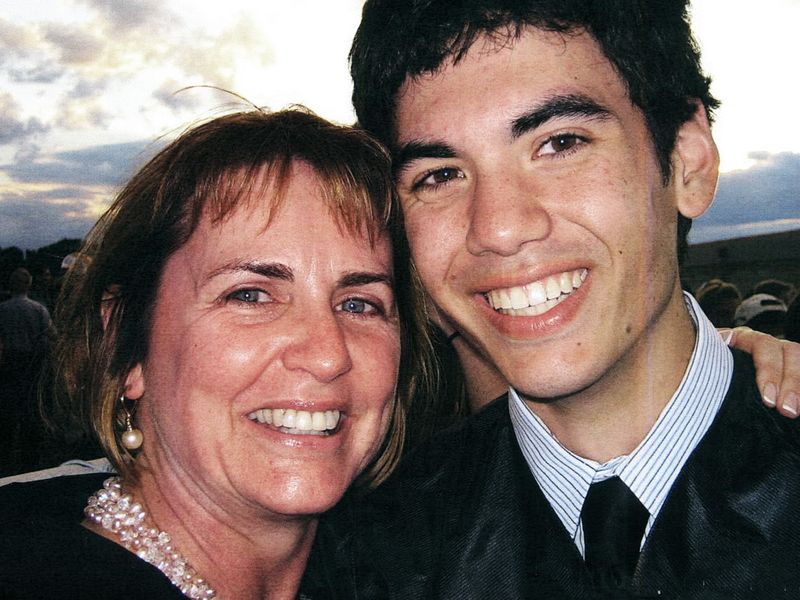As parents, it’s natural to have certain expectations of our children, even as they grow into adulthood.
However, holding on to outdated or unrealistic expectations can strain relationships and hinder personal growth for both parties.
Here’s a look at 20 things you might want to consider letting go of when it comes to your grown children.
1. Constant Updates
In the era of instant communication, it’s understandable to want regular updates from your grown children. However, expecting them to check in constantly can be overwhelming.
They are juggling careers, relationships, and personal interests, and may not always have the time for frequent updates. Allowing them the freedom to contact you when they can helps foster independence and trust.
It’s crucial to respect their personal space and understand that responses may not always be immediate. This understanding can strengthen your relationship, promoting a more balanced and respectful communication style.
2. Traditional Milestones
Society often outlines a traditional path of milestones, such as graduating, getting married, and starting a family. However, these milestones are not one-size-fits-all.
Your grown children may choose paths that differ from these norms, and that’s perfectly okay. Encouraging them to pursue what truly makes them happy rather than conforming to societal expectations is important.
Appreciate their unique journey and the milestones they achieve in their own time. Embracing their choices fosters an environment of acceptance and love, which is far more meaningful than any traditional milestone.
3. Living Nearby
Expecting your grown children to live nearby may not always be feasible. Opportunities and personal choices may lead them far from home. While it can be challenging to deal with the physical distance, understanding their need for autonomy is essential.
Consider leveraging technology to maintain your connection, such as video calls or social media. Respecting their decision to live where they thrive ensures a healthier relationship.
Embrace the opportunities to visit or have them visit, cherishing the quality time spent together, rather than focusing on the quantity of time apart.
4. Career Choices
While parents naturally wish for their children’s success, expecting them to pursue specific careers can lead to unnecessary pressure. Each individual has their own passions and skills.
Supporting your children in exploring their interests and making their own career decisions is vital. Recognize that success comes in many forms and what might be satisfying to you might not be for them.
Encourage them to follow their hearts and support their choices, even if they differ from what you envisioned. This support can lead to a more fulfilling and passionate career path.
5. Frequent Visits
Life gets busy, and while your grown children may want to visit often, their schedules might not always allow it. Expecting frequent visits can lead to unnecessary guilt and pressure.
Understanding the demands of their lives and being flexible with visit expectations can alleviate stress. Encourage quality over quantity, cherishing the moments you do spend together.
This mindset fosters a more positive and less burdened relationship, allowing both parties to enjoy time together without the weight of obligation.
6. Financial Support
As children grow, they seek financial independence. Expecting them to rely on you for financial support can undermine their self-sufficiency. Encourage them to develop financial literacy and manage their own budgets.
Supporting them in emergencies is different from regular financial aid. Offer guidance rather than handouts, promoting their growth into financially responsible adults.
This approach not only benefits their independence but also relieves you from ongoing financial obligations, leading to mutually beneficial outcomes.
7. Same Beliefs and Values
Expecting grown children to share the same beliefs and values as you can be unrealistic. Their experiences and interactions shape their perspectives, which may differ from yours.
Embrace these differences as opportunities to learn and grow together. Respecting their views fosters open-mindedness and enriches your relationship.
Engaging in respectful conversations allows both parties to expand their horizons without judgment, creating a more harmonious and understanding dynamic.
8. Handling Responsibilities the Same Way
Just as everyone has unique personalities, your grown children have their own ways of handling responsibilities. Expecting them to manage tasks exactly like you do can lead to frustration on both sides.
Recognize and appreciate their methods, even if they differ from yours. Encouraging individuality and problem-solving in their own way promotes confidence.
By accepting their approaches, you build trust and understanding, allowing them to develop independence and self-reliance.
9. Parenting Style Mirror
If your grown children have their own families, expecting them to parent exactly as you did might not be realistic. Different times call for different approaches, and they may have their own beliefs about raising children.
Support their parenting style by offering advice only when asked, and respect their choices. Acknowledging that there is more than one way to be a good parent builds respect and strengthens family bonds.
Trust in their ability to nurture their families, and remember that your support is valuable.
10. Immediate Answers to Calls
In today’s fast-paced world, expecting immediate answers to calls may not always be feasible. Your grown children may have commitments that prevent them from responding right away.
Understanding their busy schedules and allowing them time to return calls shows respect for their priorities. Establishing a mutual understanding about communication helps maintain a healthy connection without pressure.
It also demonstrates your trust in their ability to manage their time effectively.
11. Shared Interests
As children grow, they develop their own interests and hobbies, which may differ from yours. Expecting them to share the same interests can limit both your experiences.
Celebrate their individuality by showing interest in their passions, even if they’re new to you. This openness can lead to enriching experiences for both parties.
By embracing their uniqueness, you foster a more inclusive and supportive relationship, full of exploration and mutual respect.
12. Perfect Life Choices
No one can make perfect life choices all the time. Expecting your grown children to do so can create undue pressure and stress. Mistakes are part of learning and growth.
Support them in their decisions, providing guidance rather than criticism. Encourage resilience and learning from mistakes.
Your support can be a crucial factor in helping them navigate life’s complexities with confidence, knowing they have your unwavering support.
13. Immediate Problem Solving
Life’s problems can be complex, and expecting immediate solutions from your grown children is unrealistic. They may need time to assess and navigate their challenges.
Encourage them to take the time necessary to find the best solutions. Offering support rather than immediate answers nurtures their problem-solving skills and independence.
Your patience and understanding can empower them to tackle obstacles with confidence, knowing they have your support.
14. Following Family Traditions Exactly
Family traditions are cherished memories, but expecting them to be followed exactly can stifle individuality. Your grown children may wish to create their own traditions that reflect their lives and values.
Embrace the evolution of traditions by participating in and celebrating their new customs. This openness fosters inclusivity and shows respect for their autonomy.
By honoring both old and new traditions, you create a more dynamic and harmonious family environment.
15. Living by Your Advice
While parental advice is valuable, expecting grown children to live strictly by it can limit their personal growth. They need the freedom to make their own choices and learn from them.
Offer guidance as a supportive resource rather than a directive. This respectful approach allows them to seek advice while retaining their autonomy.
Encouraging independent decision-making strengthens their confidence and fosters a more trusting relationship.
16. Immediate Life Stability
Life’s journey is filled with ups and downs. Expecting immediate stability for your grown children can add pressure to their already complex lives. Building a stable life takes time, effort, and patience.
Support them through transitions, offering encouragement rather than urgency. Celebrate their progress and resilience.
Your understanding and patience can significantly impact their confidence and ability to thrive, knowing they have your unwavering support.
17. Identical Family Dynamics
Every family is unique, and expecting your grown children’s family dynamics to mirror yours is unrealistic. They will develop their own family structures and relationships.
Respecting their choices and celebrating their uniqueness fosters harmony. Support them in creating a family environment that’s true to their values and circumstances. This acceptance strengthens family bonds and enriches your connection with them.
18. Unwavering Availability
Grown children lead busy lives, and expecting unwavering availability can create tension. They have commitments and responsibilities that require their attention.
Understanding their need to prioritize allows for more meaningful interactions. Encourage quality time together when possible, valuing each other’s schedules. This approach fosters a supportive relationship based on mutual respect.
19. Equal Attention to Everyone
Balancing attention among various relationships is challenging. Expecting your grown children to distribute their attention equally may be unrealistic.
Recognize their efforts to maintain connections while managing their lives. Encourage communication to understand each other’s needs. This understanding can lead to a more balanced relationship, where both parties feel valued.
20. Replicating Your Life Path
Each person’s life path is unique. Expecting your grown children to replicate yours can hinder their exploration. They need the freedom to find their own way.
Celebrate their individuality and support their choices. Encourage them to pursue what truly fulfills them, even if it differs from your path. This respect for their journey strengthens your relationship and allows them to thrive authentically.




















